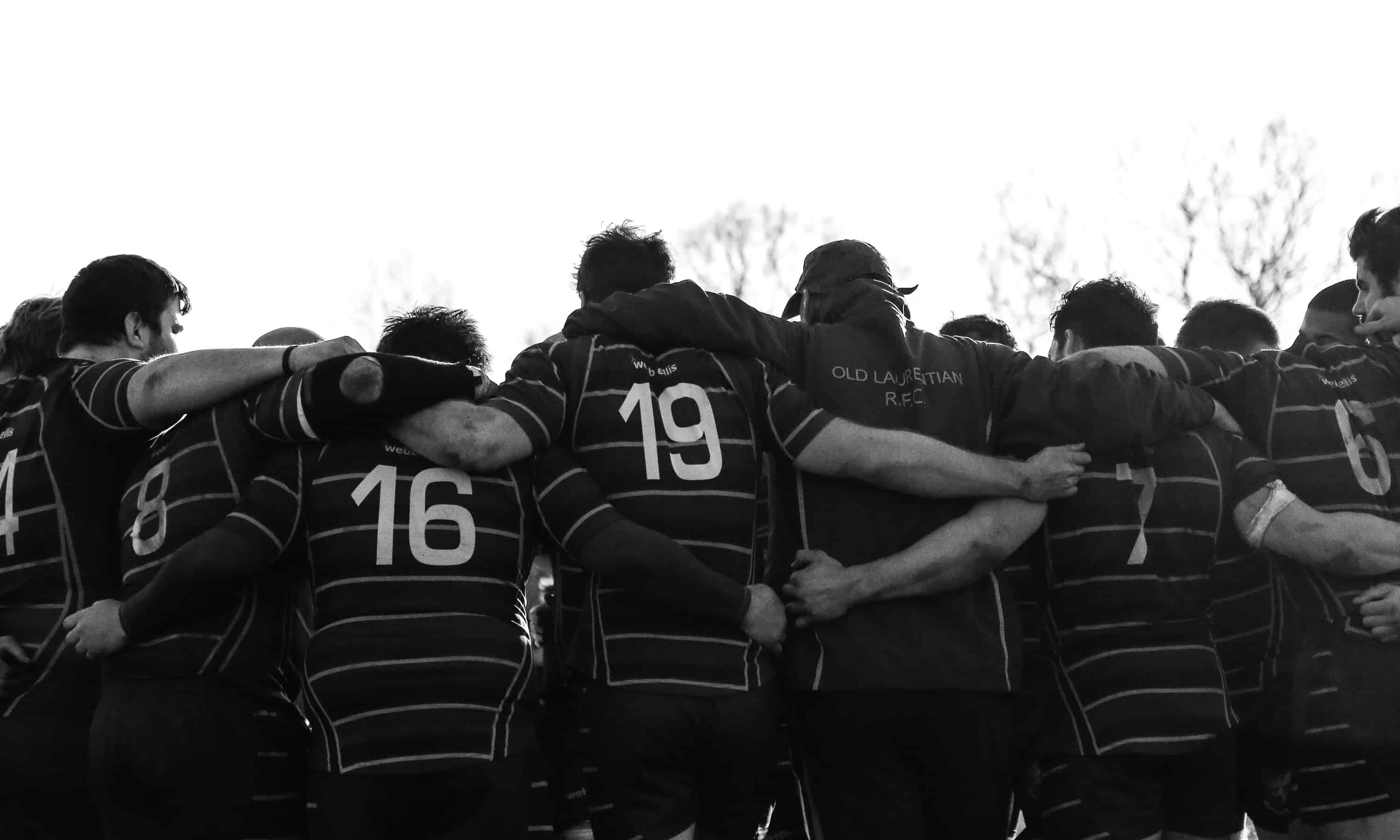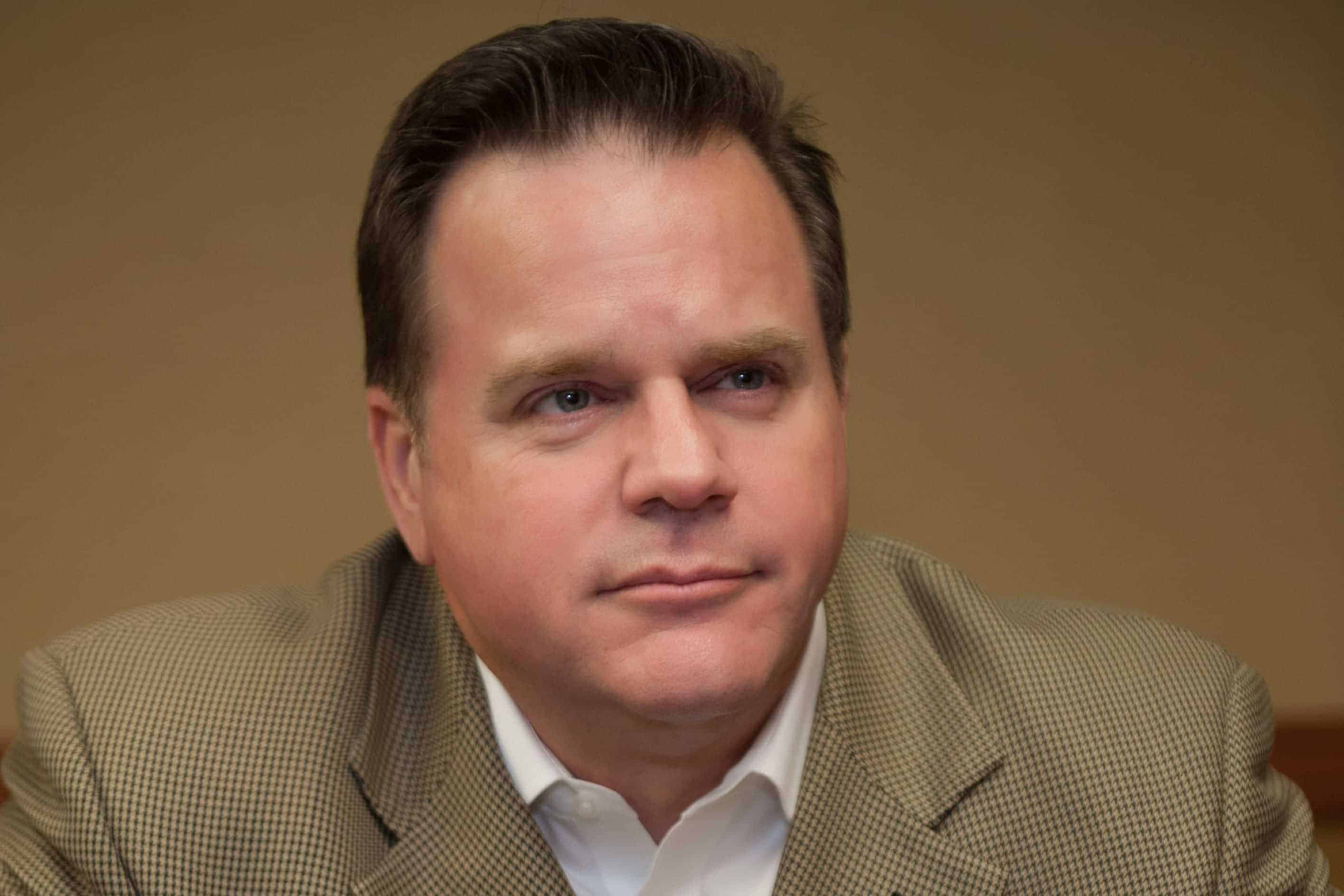Good morning! Hey, what a Monday morning as we are celebrating another great week here. On Live a Life by Design. As I look out the window of my second floor studio, I see the bright green grass with the wild deer running all around the property. As you look out you see the sun rising from the east, it’s giving us the shine across the lawn as you can see the dew on the grass is all lit up as if it were lit by a higher being. Hey, I’m Jimmy Williams, thanks for joining us again on this Monday for Live a Life by Design.
Today we’re gonna talk about something that is, I believe, impactful for each of us to reach our goals in life. Today I’m gonna talk about halftime. Yeah, you got it. In any sporting event there is typically a halftime. What do they do during that halftime that allows them to be better the second half? So today I want to visit with you by taking a little trip down memory lane. When I was in high school, I went to a very small school, but when I was in high school, we had a basketball team that was very very good my senior year. As a matter of fact we were so good, we amassed a record, twenty one and two season going into the postseason. We had great people on the team, played as a team, but the most powerful, impactful change agent was our coach.
Our coach was one of these gentlemen that was very quiet, he was very much an influencer, he was very positive. He wasn’t real animated, but you knew when he was talking with you that he was motivating you to reach your highest potential. You see, we were at the regional championship game. We were down by a few points, which was unusual for us, as you could tell by our record. We were usually the team that’s in the lead, you know those that leaded the half usually win the game, and so we had the mindset for our team that if we were gonna play we played hard those first two quarters particularly because we wanted to set the tone of the game. Well as we’re sitting there in the dressing room, our heads are hung down, towels are over our heads wondering what do we have to do differently to overcome the team that we’re playing.
Our coach said something with three phrase words that I have remembered to this day. He said first of all let’s do a couple of things, let’s evaluate the first half. So he did something on the chalkboard, yeah that tells you my age, back then we had chalkboards, not dry erase boards. But on the chalkboard he started evaluating some of the areas we could improve our performance in the second half. He then set down and measured, Ok, based on what we just evaluated, let’s measure that to our target performance, what should we have done and then the third thing is, let’s move forward. That’s right, you evaluate, you measure, and you move forward. And one of the things that’s important about all of us for success is is that we don’t get stopped in the measurement. We want to look at this from a standpoint of moving our lives forward to our ultimate goal, whatever that may be. Whatever pinnacle you’ve set for your life. It reminds me as we go through the year, we just concluded six months of 2019 and, wow, does time not pass pretty fast?
I look back at my goals, on January 1, and I did a quarterly review, I look at them every quarter and compare what were my goals for the quarter, compared to my larger goals at the beginning of the year that I want to complete for the entire year of 19. I evaluate my performance, I measure then where I need to look for improvement, and then I move forward on that goal.
So one of the things I did, here June 30, and I hope you are looking at your goals as we’re going through this Live a Life by Design episode today. Look at your goals, and say, Ok you know I haven’t really been acting toward this goal as I should to accomplish it for the first six months. Well put that out of your mind now. That’s the measurement process and now the most important part, move forward. You see I can’t change yesterday, but I can certainly fix tomorrow to what I wish it to be. This is a statement I’ve given our clients that come into our office from time to time and they have not maybe saved well for retirement. They’ve maybe not have managed their money well. And they come in to us and they say, here’s my goal of retirement, and we look at them on the inputs, the savings, the discipline, and so forth, and we look at that and measure for them what the difference needs to be now this “second half” of their savings since they came in to meet with us, what does that look like and how do they move forward on this process?
You see I want to take one thing out of this process. Do not sit down and kick yourself for not performing well. We are human. My business coach, Dan Sullivan, has a statement that when you sit down and you measure your performance, based on where you are today, to the ideal performance it’s called going in the gap. None of us can be 100% ideal in all facets of life. And so we need to look at, not the ideal, but where we were yesterday. And the day before, or the month before. Or the year before. We try to contribute to our growth based on measuring against ourselves. And our past performance.
Don’t attempt to set yourself up perfection. Perfection cannot be achieved. Let’s talk about how emotions play in this role. If you go into the gap one of the things you’ll find real quick is you get a little bit depressed. You look at it, and you go, oh my goodness, you know, I’m looking at someone else, and they look like they have the world by the tail. And here I am struggling in one area of my life that I wanted to improve, I put it on my goals for January 1, I have still not conquered this area. Or reached my end result. When you do that, allow yourself to have that moment, but just a moment. Don’t stay in that gap. So John Wooden, the winningest coach of NCAA division one college basketball in history, known for winning national championships. He has coached some of the greatest players to ever enter the NBA and then they were successful beyond that. John Wooden had a statement that says this, “Intensity makes you stronger. Emotionalism makes you weaker.” It is ok to have a moment of emotionalism, but it shouldn’t be the riding factor for your future. Instead I’m encouraging today, I want you to look at those goals one more time now that you’re at June 30, the six months has passed, there’s nothing I can change about that. Sit down, look at it, reevaluate your stance is that goal still important to you if it is set down now a course to achieve it over the next six months.
And take this moment to say with intensity, here are the steps I’m going to take to achieve the goal. Not that you’re upset you didn’t achieve, that against going in the gap, I want you to be in that mindset that says today is a new day. I have the next 24 hours to make a difference in my life.
You know, you’ve heard it said many times that life is truly a journey and not a destination. We are human. We have outside forces that play in our role as a day goes. You know, I admittedly have had my day planned, which I plan the night before, I look at my goals for the year, I look at my goals for the month. I then write down my big three for the week. I then each day write down my top three goals that’ll help me move toward those big three for the week. And I do all this the night before, why do I do that? I do it because when I get up in the morning I want nothing on my mind but those big three and once I see I’ve got them written down, I’m ready to take on the world. But sometimes the world throws a curveball.
Now we’re in baseball season, so I will tell you curveballs are tough to hit. And you know you start out your day at your office, or you go to your job and you set down and you start on those big three items to move your world forward. And a curveball comes. Instead of allowing you to get your three big items done that day, the curveball takes over. So you only got one item done out of those three and you’re just feeling a little bit defeated. Don’t be. Put a check mark beside the one you’ve got completed and remember evaluate the day, what happened, what could you control, what could you not control. If you couldn’t control it, don’t beat yourself up. Measure what you did right. Take that check mark, but proud of it. Now I’m gonna tell you something on our podcast today that I have probably said before. I don’t want the whole public to know it, but I’m hoping the thousands of our listeners will understand what I mean when I say this. I have performed some tasks during the day that I had not written down on my goals for the day, or my to do list. I wrote those items I already performed down on my to do list, just so I could put a check mark beside them. It made me feel better.
If it’s doing nothing more than making you feel better, build your confidence to move forward, then there is no problem with that in my opinion. Just simply know that you sometimes can’t control every facet of your day, as hard as you try. You know, give yourself a break from time to time. This is halftime. We want you to do a few things today as you listen to this podcast. I want you to reevaluate where you are on these goals. If you didn’t get them accomplished, no problem, reevaluate the goals, see if it’s still important as it was or if it’s as needed to reach your ultimate goal in life. And recharge. Give yourself a halftime. Take a day if you want. Put all business out of your mind. Put everything away from your heart, just sit down and relax, do what you want to do for a day to rejuvenate yourself. Recharge those batteries. Recharge your mental facilities, let your mind rest for the day. If you’re like me, you’ve got a thousand things that you could be doing, and I have to literally force myself to take a day and recharge.
And if we’re gonna reevaluate and recharge, the next thing we need to do is now that we’re powered, ready to go, re engage. The next six months is the second half of the game of life for this year. The next six months is your time to go in now and improve on the performance. Set yourself up for success. Don’t do the same things you did in the first six months. For example, if you weren’t planning your day the night before, plan your day the night before. If you weren’t planning your weeks, to have at least a predictable outcome, start planning on the weekend for the next week. Give yourself some guidelines, give yourself some discipline, in the process of reaching success. Change the way you’re doing what you’re doing now. So that you can do better in the future.
You know I want to talk about two lumberjacks for just a moment. These two lumberjacks were both in the forest in the northwest United States. Both had a significant number of trees that needed to be cleared off the property. They started bright and early that morning at the same time. One lumberjack worked feverishly, a very frenetic pace, just continued chopping at trees and chopping at trees, and every now and then he would take a glance over at his friend, a few yards away. And he was sitting down. And he wondered to himself, well how can he accomplish his goal of getting all the trees that he’s been allotted on the ground if he’s sitting. Well, the lumberjack continues to work and work and he’s getting very very tired. It’s now midday and he’s looking over at the lumberjack, and he’s sitting again. At the end of the day he looked at the production between the two of them, and noticed that the fellow lumberjack that had been seated the few times he glanced over to see how he was performing had actually accomplished more than he, that continued chopping all day. He had labored til he was completely worn out, and still the person he caught seated on two occasions during the day had out produced him.
He couldn’t help but wonder, so he walked over to his fellow lumberjack and asked him a simple question. I don’t understand, he explained how did you produce more wood on the ground than me when I glanced over two times and you were just sitting taking breaks. The other lumberjack looked at him with a smile, and he simply said, Oh I wasn’t simply sitting. I was sharpening my axe. You see what had happened is the laboring lumberjack was the one who didn’t stop to sharpen his axe. He continued just to work and work and work and he never stopped to evaluate, measure his performance, and then move forward, it’s during that measuring process the lumberjack his friend, was sharpening his saw. In other words, he changed his approach instead of sitting there beating that chopping saw against the wood, or chopping axe against the wood and it dulls out over time of use, he would take breaks and sharpen it. He realized that to reach his goal, he must change his inputs from simply just hammering away with the chopping axe all day.
You know, living a better life in the second half requires one other use for you. It requires intentionality. Intentionality means you intend on getting accomplished whatever you set out for yourself. So often I see people called stumblers. You know they stumble into some success, but they can’t continue the success or they can’t replicate it because it was not intentional. The real key to intentionality is the planning of the event. The execution of the event. And then the conclusion of the event. So intentionality is needed. Let’s talk a minute about something near and dear to my heart. I’m going through a transformation in my body that I’m attempting to change my lifestyle there a little bit more. I’ve been an old athlete for all my life when I was in sports in high school, I excelled, everything I could play that had a ball with it I thought I performed very well, usually started on the main team. I grew faster than most of the kids in my class, so I was always one the go to athletes on basketball, for example, I was bigger more muscular in grade school, so I started out pitching for baseball, and I’m not saying that to brag, I’m just saying that it came pretty easy for me back when I was younger. Well now that I’m much much older, I’ve noticed that the body doesn’t respond to the challenge as much as the brain would like. Imagine most of you listening have that experience from time to time. But I am now working on diet, physical exercise, and I’m also working on and you’re gonna laugh, but I’m working on emotional exercise.
Now why would someone in their mid fifties need to work on emotional exercise, that sounds like a maturation, or a maturity issue. Has nothing to do with that, but it does have everything to do with as we age we need to gain wisdom. This intentionality of mine to be more wise tomorrow then I am today, is part of the process of halftime. It’s part of why we take the break, what we read, what we put into our mind, what we study on. These are important inputs to us becoming a better player in the halftime of life. That’s second quarter, second half of life is something that we are focusing on by improving during the halftime break.
You know, this intentionality is something that we must purposefully look at as a contribution to our success. To simply go through each day as you did the day before, and sit back and wonder at the end of the year, why have I not grown financially, why have I not grown spiritually, physically, emotionally. It’s because we really didn’t work toward a goal, we simply worked.
There’s a big difference between trying to reach a goal then there is one that’s just throwing the caution to the wind. I’ve often heard it said that if you look at a goal, and you can see it in your mind, what the mind can see and believe it can achieve. And at the end of the day, if you don’t have written goals, and you say well, I keep my goals in my mind, I disagree. If you’re not writing them down, you can not visually with your eyes put a picture of those goals and embed them in your subconscious so that even at night while you sleep you may accomplish some thoughts toward your goal.
Another thing I do and I’m gonna challenge you to think about is I keep a pin and paper by my bedside at night. Now again, I know that sounds a little different then most people, but again if I want to be better I have to learn some little knacks to change, some little hacks if you will in life. So what I do is before I go to bed, I actually take this notepad, it’s actually my journal, and I write down my biggest challenge that I’m going through right now. Right before I go to bed. And then I close my journal, with that last drying of the ink on the paper. And I close my eyes, and then my mind in its own fantastic way as God designed us, it allows itself to work on the thoughts and what it can do to solve the challenge I laid before myself by writing it down. I awake in the morning and sometimes, don’t laugh, I’ve awoken at five in the morning, instead of my normal five-thirty, and my eyes will just pop open and in my mind I will see the solution. You see, halftime is at night when you sleep as well. Your day’s been busy, you’ve worked hard all day, you’ve run here and there and you are run ragged. You take that nice shower right before you go to bed and now your mind and body are ready to rest and only at that time of rest when you’re away from all the distractions of life. Away from the crowd if you will of the sporting event, away from your other players that are yelling for you. It’s halftime. Take that break. I have a statement I want to read to you from Jim Rohn, one of my mentors. You’ll hear me quote him a lot on this podcast, I just think so highly of him. But Jim Rohn had a saying that has been with me now for thirty years of my career. And this is a very simple statement, but it really is profound if you apply it. Jim’s quote is, “Either you run the day, or the day runs you”.
Are you allowing your day to run you? Are you allowing others to control your actions vs you purposely with intentions setting the tone for your day. Planning for your day what you need to achieve to move forward in your goals. I got news for you, if we fail to plan for our day our week our month our year, there are others that have a plan for you. And I can assure you their plan is not nearly as good as yours.
So take a halftime, find some time, look back over this last six months, what you’ve accomplished during the evaluation process, measure where you are, if you haven’t accomplished the goal, it is still time to move. And then do, move forward. Evaluate, measure, move forward. It’s that simple. But you have to take time and you have to work on it with intentionality to achieve your goals. You know I’m thankful for each of you for listening to our Live a Life by Design podcast. I’ve often phrased it as your Monday morning moments of motivation, but I hope it’s just more than just motivation. I hope it’s some really profound statements that stick with you, give you guidance, give you confidence so that you can move forward and be a bigger and better and bolder you tomorrow. Our challenge for you this week, give yourself a personal halftime. You know, what are the areas you need to improve, in the comment section on our website, is right below the podcast episode, if you would, link some of those items in there for me, tell me what you’re working on that’s most important to you and what’s been holding you back, or what’s the area that needs improvement.
I’ll be glad to go through and help give some advice, give some input, give you some strategies that will help you improve those odds, so you can be what you want to be. That you can do what you want.
Our next episode, if you’ll join us next week is Flourishing in a World of Disruption. It’s truly been a pleasure, joining you for just a few moments of time today. If you like the show, please tell your family and friends about it. Also we would be very appreciative if you would leave a review of the show wherever you listen to podcasts.

















